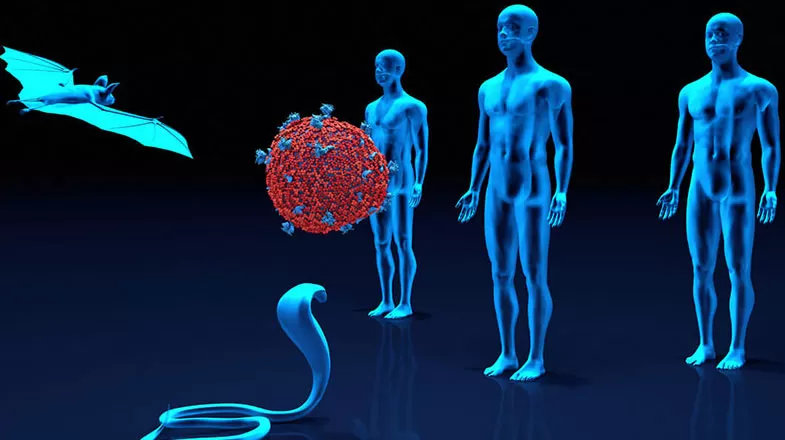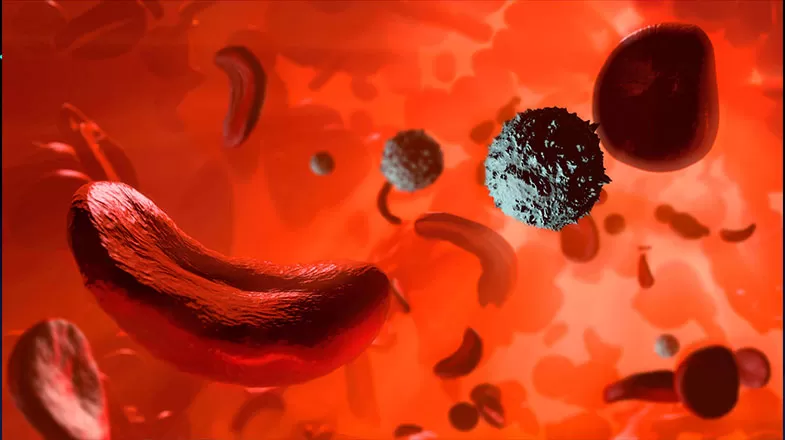Featured Articles
Read our latest stories on the people and scientific innovations making a difference in patients’ lives.

Living & Wellbeing
Why Raising Health Literate Children Is Important
Annlouise Assaf’s grandmother didn’t speak much English when she left Lebanon for the United States in the early 1900s. The language barrier forced Assaf and her siblings — who were just kids — to stand in as the chief interpreters during doctors’ appointments. As her grandma’s health hung in the balance, Assaf soon found herself juggling much more than two dialects. “The doctor would ask us all these questions,” recalls Assaf. “But first, we had to understand what the doctor was asking us.” T...

Living & Wellbeing
The Truth About COVID-19 and Black Fungus
The novel coronavirus has recently been linked to two serious fungal infections: COVID-19 associated pulmonary aspergillosis (CAPA) and COVID-19 associated mucormycosis (CAM).1 The resurgence of these rare fungal infections has medical personnel concerned. A 2021 study found that more than 47,000 cases of CAM were reported in just three months in India. And with the Delta variant spreading worldwide, reports suggest that the number of cases is likely much higher.2 Aspergillosis and...

Real People
Ramcess Jean-Louis Is Ready to Build on Pfizer’s Longtime Commitment to Diversity, Equity, and Inclusion
As the new Global Chief Diversity, Equity, and Inclusion (DEI) Officer at Pfizer, Ramcess Jean-Louis is betting that the global biopharmaceutical company that delivered a COVID-19 vaccine in nine months will support the mission of his office with a similar urgency and can-do spirit. “I feel as if I’ve joined an organization that has the mentality and philosophy that nothing is impossible. When we apply that same urgency and attention to the area of diversity, equity and inclusion, the...

Purpose & Ideals
Through Public-Private Partnership, Scientists are Working to Better Understand Gene Therapy and How it Could Help Patients With Rare Diseases
A rare disease is, by its very nature, rare. The CDC defines a rare disease as a condition that affects fewer than 200,000 people in the United States, or no more than one out of every 2,000 people in Europe.1 And yet, rare diseases—which frequently have a genetic component—affect many: there may be as many 7,000 different types of rare diseases, impacting 25 to 30 million people in the United States, according to the National Center for Advancing Translational Sciences.2 Often, rare diseases...

Purpose & Ideals
Aiming for Equity: Assessing Pfizer's Ongoing Commitment to Diversity and Inclusion
As one of the world’s most prominent biopharmaceutical companies, Pfizer recognizes a responsibility, not just to pioneering medical and scientific breakthroughs, but also to building teams of scientists, doctors, and professionals that represent and model a diverse workforce. In 2020, Pfizer CEO Albert Bourla laid out a series of goals to demonstrate the company’s dedication to Equity, one of Pfizer’s four core values, by increasing diversity and inclusion. These goals focus on improving...

Where Do Pandemics Come From?
Fleas seem like just an itchy nuisance for your pets, yet they were responsible for two of the most devastating plagues in human history. The bacteria Yersinia pestis, carried by fleas from rodent to rodent, was responsible for the Plague of Justinian in the sixth century and the Black Death in the 14th century. The Plague of Justinian cost 100 million lives in the Roman Empire, while the impact of the Black Death was as high as 200 million souls across medieval Europe. Now classified as a...

Trusted Voices
Thanking John Young for His Years of Service to Pfizer – and to Patients
It is with mixed emotions that I share the news that John Young, Pfizer’s Chief Business Officer, will retire in early 2022, following a distinguished 34-year career at Pfizer. John’s list of significant accomplishments at Pfizer is long, but perhaps none is more important than his essential role in cultivating the collaborations that led to the successful development and delivery of the Pfizer-BioNTech COVID-19 vaccine. During his time at Pfizer, John has led many large-scale transformations...

Translating Technical Language into Plain Language for Clinical Trials
"Adjuvant therapy." "Pharmacologic effect." "Standard-of-care." These aren't terms used by most people in everyday conversation. But this kind of medical terminology has long been a part of clinical trial summaries, making it daunting for many people to understand what they're reading. Pfizer is working to change this by releasing results of clinical trial studies to the general public in language that’s meant to be understood by people of all backgrounds: plain language. The goal of the...

Purpose & Ideals
Collaborative Efforts in Biopharma: Accelerating Vaccine Development
In the year since the pandemic struck, the world has watched one of the greatest real-life dramas of all time unfold: the quest for a vaccine. In the past, drug development and clinical trials were of interest to a relatively small group of scientists, regulators and health care professionals. But with the threat of COVID-19 looming large, time has not been a luxury. The race for a vaccine has become a true spectacle, carrying with it the potential to save untold numbers of lives, globally.The...

New Hope for a Once Neglected Disease: Advances in Sickle Cell Treatments
In the early 2000s, Kelly Knee was in graduate school at Wesleyan University in Middletown, Conn. studying Molecular Biophysics. And at the time, she found it nearly impossible to secure grant funding for research on sickle cell disease, a rare blood disorder that historically has been a neglected area of medical research. But hearing stories from patients suffering from severe pain episodes and frequent hospitalizations kept her going. “I’ve been working on this since I started graduate school...

Living & Wellbeing
Do You Have What It Takes to Join a Phase 1 Clinical Trial?
“Life's most persistent and urgent question is: What are you doing for others?” ~ Martin Luther King, Jr. For some, volunteering at their local food bank is a preferred way to give back. Some donate money to organizations or non-profits they believe in. Others donate blood. But there is another way people can give back that may not be as top of mind: Participating in clinical trials. Clinical trials are critical to the progression of medical research and they rely on people who are willing...

Living & Wellbeing
Tackling the Complex Challenges of Hard-to-Treat Blood Cancers
Blood cancers remain one of the greatest health challenges of our lifetime. In 2020, more than 1 million people worldwide were diagnosed with a blood cancer.[1] And while no two blood cancers are alike – whether leukemia, lymphoma, or myeloma -- treatments vary greatly.[2]What Makes Blood Cancers Unique?Oncologists categorize cancers as solid tumors or blood cancers. Blood cancers, also known as hematologic cancers, are cancers of the blood cells, while solid tumor cancers are cancers of any of...
Media Resources & Contact Information
Anyone may view our press releases, press statements, and press kits. However, to ensure that customers, investors, and others receive the appropriate attention, Pfizer Media Contacts may only respond to calls and emails from professional journalists.
